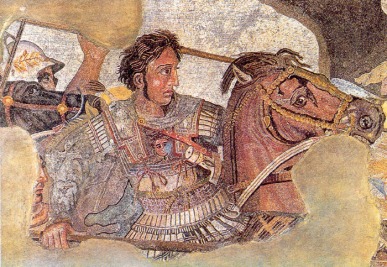More Bad Sex, Please
If there’s anything more orgasmic than the Bad Sex in Fiction Awards, it’s probably illegal.
Even more than the Darwin Awards, I anticipate the BSIF every year. The annual contest by Britain’s Literary Review highlights “the crude, badly written, often perfunctory use of redundant passages of sexual description in the modern novel … and to discourage it”, in much the way that the Razzies reward the most excruciating of Hollywood cinematic effort.
Now, the BSIF isn’t meant to tackle outright porn or erotica, hence the explainable absence on this year’s short-list of the appallingly cringeworthy “Fifty Shades of Grey” series. It’s intended to humiliate authors of ‘mainstream’ novels, whose scribing skills fail to rise to the occasion at the bedroom door.
Writing good sex is (ahem) harder than it looks, given the abundance of cliches lying about like landmines in Zimbabwe, so I do have a certain amount of sympathy for those nominated every year. And a previous winner, Rowan Somerville, argues persuasively and with a minimum of sour grapes here (in the Independent) that the BSIF Awards are schoolyard bullying passed off as “a bit of fun”, and have their roots in British parochial prudery. He suggests that many of the passages plucked out of the prose and held up to public ridicule aren’t half as bad when read in the context of the larger novel.
I suspect he’s right, but when they are taken out of context, some of them are bloody hilarious. It’s even more fun to know that this year (the 20th anniversary edition), there’s a Canadian among the eight shortlisted authors. Nancy Huston, a Canadian-born writer living in Paris, is the author of Infrared, an English translation of a novel she originally wrote in French as Infrarouge. (The above Amazon link indicates that the nomination hasn’t hurt her any — the book seems to be flying off the shelves.)
The full shortlist: Tom Wolfe, nominated for Back to Blood, The Yips by Nicola Barker, The Adventuress by Nicholas Coleridge, Infrared by Nancy Huston, Rare Earth by Paul Mason, Noughties by Ben Masters, The Quiddity of Will Self by Sam Mills – a
particularly worthy nomination, since Mills’s fiction has been shortlisted on three occasions– and The Divine Comedy by Craig Raine. Wolfe, Coleridge and Raine are all repeat offenders.
The winner will be announced at a lavish ceremony in London on December 4 – and it is considered a badge of courage for the authors to attend to receive it, and say something self-deprecating, in person. In Somerville’s case, it was, “There is nothing more English than bad sex, so on behalf of a nation I thank you.”
And now, without further foreplay, this year’s extracts.
• The Quiddity of Will Self, by Sam Mills Down, down, on to the eschatological bed. Pages chafed me; my blood wept onto them. My cheek nestled against the scratch of paper. My cock was barely a ghost, but I did not suffer panic.
• Noughties, by Ben Masters We got up from the chair and she led me to her elfin grot, getting amongst the pillows and cool sheets. We trawled each other’s bodies for every inch of history. I dug after what I had always imagined and came up with even more. She stroked my outlines in perfect synchrony until I was febrile in her hands, willingly guided elsewhere.
• Back to Blood, by Tom Wolfe Now his big generative jockey was inside her pelvic saddle, riding, riding, riding, and she was eagerly swallowing it swallowing it swallowing it with the saddle’s own lips and maw — all this without a word.
• Rare Earth by Paul Mason She breathed hot into his neck and he plunged three rough fingers down the front of her jeans, making her squeak. She had never tried wu-wei in this situation before and Khünbish, hairy and slightly paunchy, she noticed now that he had his shirt off, was generating slightly more karmic energy than she had anticipated. He began thrusting wildly in the general direction of her chrysanthemum, but missing — his paunchy frame shuddering with the effort of remaining rigid and upside down.
• The Yips by Nicola Barker She smells of almonds, like a plump Bakewell pudding; and he is the spoon, the whipped cream, the helpless dollop of warm custard. She steams. He applauds, his tongue hanging out (like a bloodhound espying a raw chop in a cartoon).

You mean, I’ve won? Ohhh, Guillermo … hang on while I fake an orgasm.
• Infrared by Nancy Huston He runs his tongue and lips over my breasts, the back of my neck, my toes, my stomach, the countless treasures between my legs, oh the sheer ecstasy of lips and tongues on genitals, either simultaneously or in alternation, never will I tire of that silvery fluidity, my sex swimming in joy like a fish in water… This is when I take my picture, from deep inside the loving. The Canon is part of my body. I myself am the ultrasensitive film — capturing invisible reality, capturing heat.
• The Divine Comedy by Craig Raine And he came. Like a wubbering springboard. His ejaculate jumped the length of her arm. Eight diminishing gouts. The first too high for her to lick. Right on the shoulder.
• The Adventuress: The Irresistible Rise of Miss Cath Fox by Nicholas Coleridge In seconds the duke had lowered his trousers and boxers and positioned himself across a leather steamer trunk, emblazoned with the royal arms of Hohenzollern Castle. ‘Give me no quarter,’ he commanded. ‘Lay it on with all your might.’
(There’s a poll below — vote for your favourite!)
Should your need prove insatiable, you can find other snippets from this year’s selections on Twitter using the hashtag #LRBadSex2012.










































